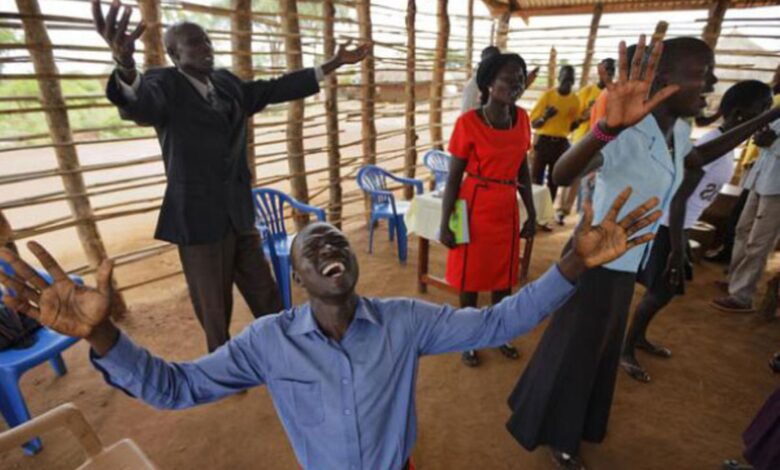Religious institutions should stop exorcising poverty as an evil spirit and join the fight
Religious institutions have a role to play in refraining from framing poverty as a curse or a demon afflicting Ugandans. This is not only patronizing but also diverts attention from the real causes of poverty and solving the problem.

By Ingrid Mpanga
Poverty is often misunderstood and misrepresented in Uganda and Africa as whole. If we are to be honest with ourselves, our situation is so appalling that it’s safe to say that most Ugandans out of a resignation to fate are choosing “Willful ignorance” and turning to prayers in search for answers and solutions.
Willful ignorance is a decision to avoid becoming informed about something so as to avoid having to make undesirable decisions that such information might prompt – in this case the glaring cause and effect of poverty that plagues us as Ugandans.
Religious institutions have a role to play in refraining from framing poverty as a curse or a demon afflicting Ugandans. This is not only patronizing but also diverts attention from the real causes of poverty and solving the problem.
I recall going from one church to the other under the influence of my girlfriends to seek blessings of powerful preachers and become blessed (read, magically wealthy). I did church-hopping that I can write a book about churches in Uganda and I believe there are many others who share this experience with me and would do better after dedicating their lives to the search of breakthroughs or blessings in churches.
I vividly recall one particular church experience where the pastors of this church had Luganda names of all the demonic spirits which church-goers had to recite as they cast them out.
Poverty was also considered one such evil spirit or demon force that plagues the people, holding them back from progress and prosperity. So the congregation would go into a trance, shouting as they would bind and cast out this evil spirit.
Now, the belief that poverty is an evil spirit one can cast out through prayer is not only misleading but very harmful. This backward belief oversimplifies and ignores the complex socio-economic challenges as well as the historical and structural factors that contribute to the rampant poverty we are grappling with as a country.
Religious institutions should not assist peddle the notion that poverty is a supernatural curse that can be cast out with prayers, through mere proclamations or laying of hands on one’s head by a pastor and instead help their followers deal with poverty in a rational, practical and structured manner.
The poverty we are experiencing as Ugandans is a man-made problem resulting from centuries of exploitation right from the era of colonialism, systemic inequalities, inadequate governance, corruption among others.
Looking at the impact of colonialism as an example, it left all our African countries with weakened economies, arbitrary borders, and governance structures designed to continue serving colonial interests rather than our well-being.
To this day, many of our African nations are burdened with debt, political instability, dependency on foreign aid, unfair trade practices, and exploitation of our natural resources which all continue to perpetuate poverty.
These systemic issues cannot be addressed by treating poverty as a demon to be exorcised as this perspective or narrative wrongly suggests that poverty is the result of failings, family bondages or a lack of effort on the part of the person, rather than the outcome of complex structural issues.
It also perpetuates the stereotype of Ugandans as helpless victims, waiting for external salvation, rather than as active agents capable of combating poverty through education, entrepreneurship and innovation.
As a country we need comprehensive strategies focused on economic justice, to curb the debilitating and rampant corruption, ensure equitable regional development, and to empower our communities.
We also need to hold Government accountable for effectively investing our scarce resources and tax payers money in poverty alleviating initiatives like investing in infrastructure, healthcare, and governance reforms like transparency, accountability, and the rule of law as well as promoting economic diversification (not be reliant on a few industries, such as mining, manufacturing or agriculture). We also need to continue negotiating for fair trade and competition in the global market, a reduction in trade imbalances, debt burden, and ensure that the benefits of our natural resource extraction are shared equitably with investors.
So instead of praying and exorcising out the demon of poverty, we need to elect leaders that are knowledgeable and capable, hold them accountable for the policies they implement instead of being hoodwinked and derailed with handouts from leaders in exchange for votes that later costs us heavily in poor service delivery.
Religious institutions therefore owe jt to the people to undertake community empowerment through mass sensitization and help Ugandans as a whole fight poverty and realize our full potential.







